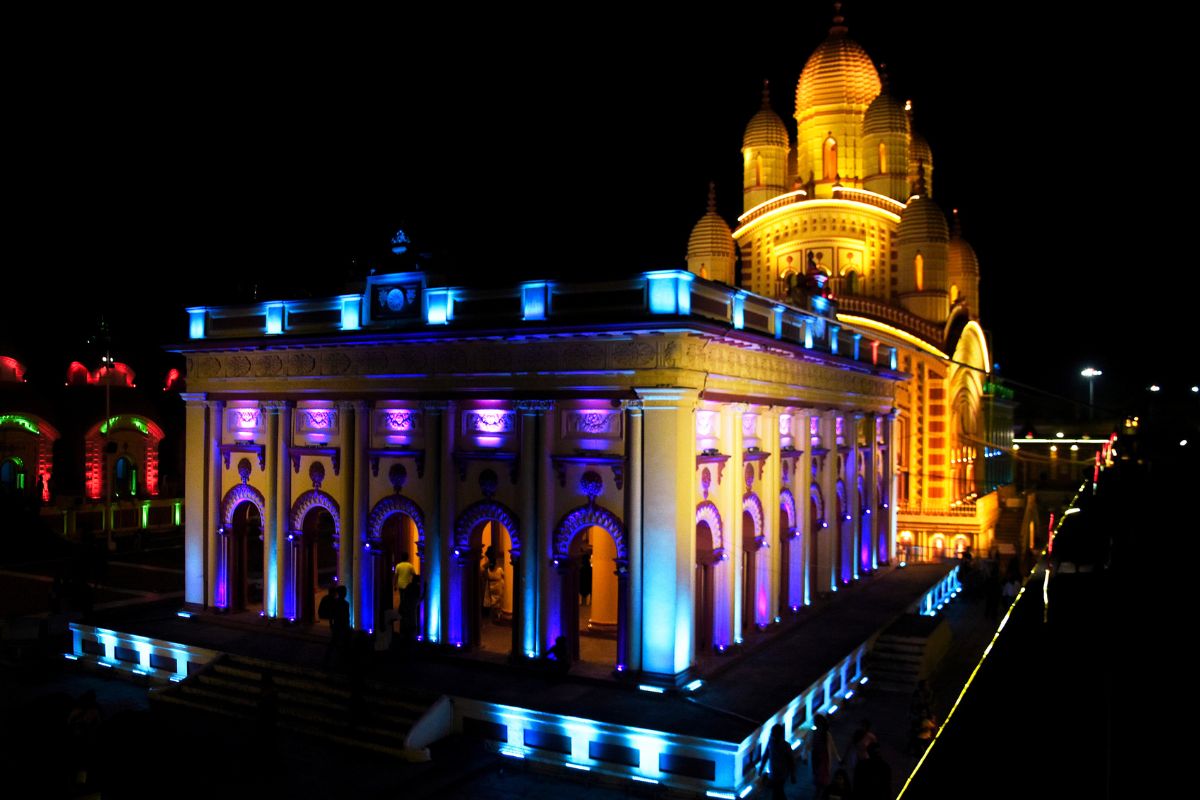Woman complains of rape, colleague arrested
An event-management company staff was arrested by the police last midnight after a woman complained of rape and physical assault at a hotel in Benachity Market area here.
Beyond the imagination of many environment activists and green technologists, the pollution level on the Kali Puja night of Monday and the morning after in Kolkata, which has been reported as the world’s second most polluted in to a recent report of HEI SoGA, came down to a record low in the last 40 years.

Cyclone Sitrang impact brings down Kolkata's pollution level on Kali Puja night to record low (Photo: ANI)
Beyond the imagination of many environment activists and green technologists, the pollution level on the Kali Puja night of Monday and the morning after in Kolkata, which has been reported as the world’s second most polluted in to a recent report of HEI SoGA, came down to a record low in the last 40 years.
Experts attributed this achievement to the windy weather and continuous drizzles in the city throughout Monday night because of the Cyclone Sitrang impact and bright sunny Tuesday morning as the two reasons for this record achievement for the city. Compared to the national capital, which has been rated the world’s most polluted city as per the same report of HEI SoGA, the night of Kali Puja and Diwali on Monday in Kolkata was environmentally greener and cleaner in true sense.
However, there is a slight black spot in Kolkata’s achievement on this count, since as regards to sound pollution on Monday night was record high in the last three years.
Advertisement
Green technologist and environment activist, Somendra Mohan Ghosh, who and his team goes on measuring the air and sound pollution levels on the nights of Kali Puja every year, told IANS that when the pollution level in New Delhi on Monday night was hovering around 340 microgrammes per cubic metre, the same was roughly around 40 microgrammes per cubic meter in Kolkata during the same period.
“Let me give you some figures. On Monday night, the pollution level was at 338 MG per cubic metre in New Delhi’s Anand Vihar as against 49 MG per cubic meter in Ballygunge area in south Kolkata. So, the morning after Kali Puja the usual scene of smoggy air was absent this time,” Ghosh added.
He also provided some comparative figures for Kolkata to what it was last year. “Last year, the pollution level on Kali Puja night in Jadavpur area in South Kolkata was 244 MG per cubic metre, which came down drastically to around 44 MG per cubic metre this year. Similarly at Bidhannagar in the northern outskirts of Kolkata, the level this year was roughly around 40 MG per cubic metre, which was 224 MG per cubic metre last year. This is a record low in any Kali Puja night during the last 50 years,” Ghosh said.
He said that there are two reasons for this drastic improvement. “First because of the Cyclone Sitrang impact there was wind throughout Monday evening and night along with continuous drizzles, which sanitised the air to a great extent. In addition to that there is a bright sunny morning on Tuesday because of which the pollution in the air evaporated further. However, there is nothing to be complacent about. The people of Kolkata should continue to be careful in the coming days as well,” Ghosh added.
However, he lamented the rise in noise pollution on Monday night, which according to him, was the highest in the last three year. “This was between 100 to 120 decibels.
“In 2020 and 2021, there were lots of restrictions on the sale and burning of firecrackers. This year the state administration only allowed burning of Green Crackers whose sound level cannot be brought down below 90 decibels,” he added.
Advertisement